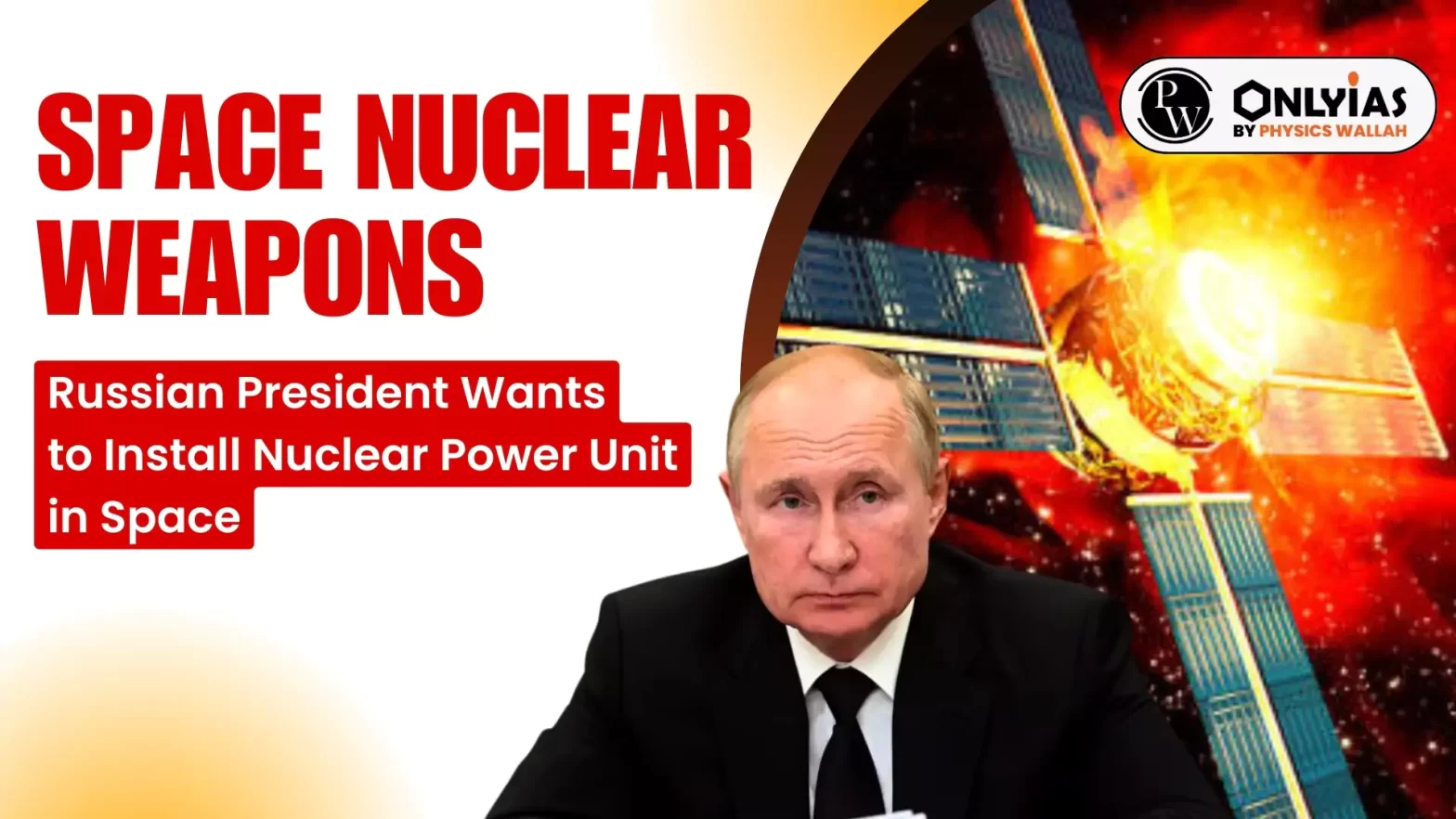![]() 16 Mar 2024
16 Mar 2024

This editorial is based on the news “Setting up nuclear power unit in space is priority for Russia: Putin” which was published in the Economic Times. According to a recent CNN report, India and China prevented Russia from using nuclear weapons in the Ukraine war. This highlights India’s importance in international diplomacy.
| Relevancy for Prelims: SPACE & SPACE TECHNOLOGY, The Global Nuclear Order, Non-Proliferation Treaty (NPT), and, Russia Ukraine War.
Relevancy for Mains: Space Nuclear Weapons, its historical context, consequences, challenges in regulation and Way Forward |
|---|
| Must Read | |
| NCERT Notes For UPSC | UPSC Daily Current Affairs |
| UPSC Blogs | UPSC Daily Editorials |
| Daily Current Affairs Quiz | Daily Main Answer Writing |
| UPSC Mains Previous Year Papers | UPSC Test Series 2024 |

<div class="new-fform">
</div>